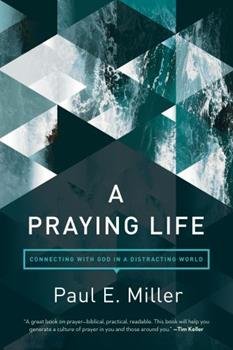At the recommendation of Tim Draper, I am currently reading a book by Eugene Peterson called Eat This Book (A Conversation in the Art of Spiritual Reading). In it, Peterson calls the Believer to what he calls a “Trinitarian Reading” of the Bible, which he describes this way:
We read in order to get in on the revelation of God, who is so emphatically personal; we read the Bible the way it comes to us, not in the way we come to it; we submit ourselves to the various and complementary operations of God the Father, God the Son, and God the Holy Spirit; we receive these words so that we can be formed now and for eternity to the glory of God.
In other words we come to the Bible to be shaped by the God of the Bible, who is Father, Son, and Holy Spirit. Anything less is to miss the point of reading scripture.
In Peterson’s characteristically astute way, however, he identifies a false trinity that has shaped how we often read scripture. I realize that this a bit lengthy, but worth the time of a careful read.
A new twist on non-Trinitarian ways of reading the Bible has emerged in our times. It has reached the scale of an epidemic and requires special attention. It can be understood best, I think, as a replacement Trinity… this way is very personal and also very Trinitarian, but also totally at odds with what is achieved while reading in submission to the authority of the Holy Trinity.
Trinitarian thinking praying before Holy Scripture cultivates a stance and attitude that submits to being comprehensively formed by God in the way God comprehensively and personally reveals himself as Father, Son, and Holy Spirit in the Holy Scriptures. The alternative to that is taking charge of our own formation. The most popular way of conceiving this self these days is by understanding the self in a Trinitarian way. This way of self-understanding is not as an intellectual interested in ideas or as a moral being seeking a good life or as a soul looking for solitary solace, but as a divine self in charge of my self. And this divine self is understood as a Holy Trinity.
Here's how it works. It is important to observe that in the formulation of this new Trinity that defines the self as the sovereign text for living, the Bible is neither ignored nor banned; it holds, in fact, an honored place. But the three-personal Father, Son, and Holy Spirit is replaced placed by a very individualized personal Trinity of my Holy Wants, my Holy Needs, and my Holy Feelings.
We live in an age in which we have all been trained from the cradle to choose for ourselves what is best for us. We have a few years of apprenticeship at this before we are sent out on our own, but the training begins early. By the time we can hold a spoon we choose between half a dozen cereals for breakfast, ranging from Cheerios to Corn Flakes. Our tastes, inclinations, and appetites are consulted endlessly. We are soon deciding what clothes we will wear and in what style we will have our hair cut. The options proliferate: what TV channels we will view, what courses we will take in school, what college we will attend, what courses we will sign up for, what model and color of car we will buy, what church we will join. We learn early, with multiple confirmations as we grow older, that we have a say in the formation of our lives and, within certain bounds, the decisive say. If the culture does a thorough job on us—and it turns out to be mighty effective with most of us—we enter adulthood with the working assumption that whatever we need and want and feel forms the divine control center of our lives.
The new Holy Trinity. The sovereign self expresses itself in Holy Needs, Holy Wants, and Holy Feelings. The time and intelligence that our ancestors spent on understanding the sovereignty revealed in Father, the, Son, and Holy Spirit are directed by our contemporaries in affirming and validating the sovereignty of our needs, wants, and feelings.
My needs are non-negotiable. My so-called rights, defined individually, are fundamental to my identity. My need for fulfillment, for expression, for affirmation, for sexual satisfaction, for respect, my need to get my own way—all these provide a foundation to the centrality of me and fortify my self against diminution.
My wants are evidence of my expanding sense of kingdom. I train myself to think big because I am big, important, significant. I am larger than life and so require more and more goods and services, more things and more power. Consumption and acquisition are the new fruits of the spirit.
My feelings are the truth of who I am. Any thing or person who can provide me with ecstasy, with excitement, with joy, with stimulus, with spiritual connection validates my sovereignty. This, of course, involves employing quite a large cast of therapists, travel agents, gadgets and machines, recreations and entertainments to cast out the devils of boredom or loss or discontent—all the feelings that undermine or challenge my self-sovereignty.
Well there you have it. Do you see hints… echos… shadows of your own tendencies in what Peterson has said? Do you come to the Bible to shape it your ends or to be shaped by God’s? Is He there to serve you or are you there to serve Him?
Let us always draw near to God’s word in order that He might increase and we might decrease.
Pastor Brett








